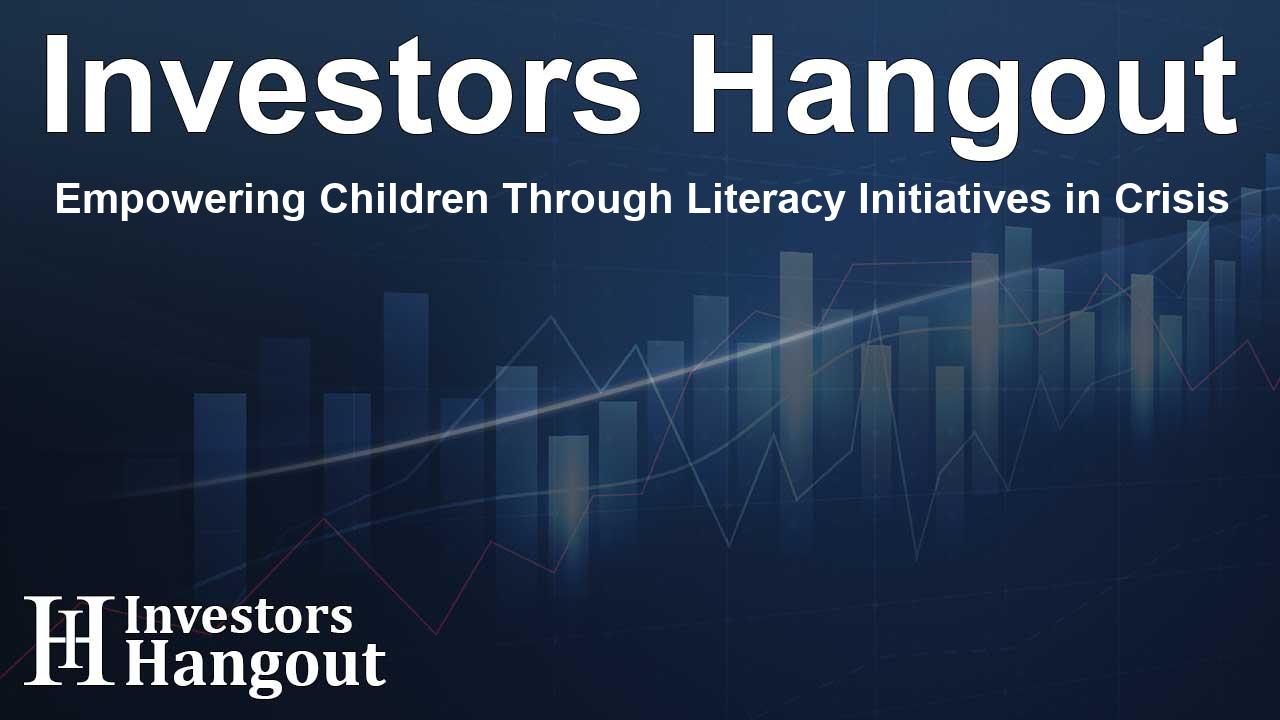Empowering Children Through Literacy Initiatives in Crisis

Championing Literacy for Vulnerable Children
Education Cannot Wait funding through its strategic partners provides foundational learning opportunities for the world's most vulnerable children to bridge the digital divide. As we embrace a digital shift, providing these opportunities has become more vital than ever, especially for those affected by crises.
The Urgency of Support in the Digital Age
As we celebrate literary advancement, we must not forget those children living in the most severe humanitarian circumstances who urgently need access to quality education. Reading is the fundamental building block for all learning. For many students, learning to read is a pathway out of poverty, while writing skills offer the potential to become future leaders. Furthermore, developing digital skills is essential for navigating the fast-paced changes of the 21st century.
Literacy Statistics and Progress
Education has made significant strides in recent decades. In 1979, only 68% of the world population could read, which has increased to 86% today. However, challenges remain, with 250 million children still unable to read basic texts. This struggle is especially deep for those in crisis situations.
Risks of the Digital Divide
The transition to digital learning environments poses risks for children with limited access to technology, stable electricity, and quality educational settings. For example, only a third of primary schools in certain regions have electricity, creating a significant barrier to learning for many. Imagine the difficulties faced by children in displacement camps, where basic educational resources are scarce.
Results with Impact
To combat these challenges, Education Cannot Wait (ECW) and its strategic partners have been funding programs designed to provide children impacted by conflict, climate change, and forced displacement with essential learning opportunities. This investment in education transforms the lives of children, breaking the cycles of poverty and insecurity.
Success Stories from Around the Globe
The impact of these programs has been remarkable. For instance, 88% of ECW's Multi-Year Resilience Programs reported improvements in literacy and numeracy skills. One notable success story comes from Uganda, where lower primary students saw an increase in basic reading skills, showcasing the effectiveness of these investments. In refugee schools, literacy rates surged from 7% to 34%, underscoring the gains made possible through dedicated support.
Building a Foundation for the Future
In addition to improved literacy skills, ECW's initiatives in countries like Niger and Pakistan reveal a comprehensive approach to education. Schools in Niger reported increases in math and language proficiency compared to control schools, while in Pakistan, Accelerated Learning Programmes have successfully helped children catch up on their education. This multifaceted approach ensures not just survival but the thriving of children in challenging environments.
The Path Forward
Literacy and education are not merely academic pursuits; they are essential components of resilience, peace, and adaptability in a rapidly changing world. The efforts of ECW illustrate the profound impact of educational support, particularly when coordinated with local and global partnerships. However, achieving even greater success requires ongoing financial commitment to these critical initiatives. Education Cannot Wait is poised to expand its efforts to bring hope and opportunity to children who are caught in crises across the globe.
Frequently Asked Questions
What is Education Cannot Wait?
Education Cannot Wait is a global fund dedicated to providing education to children affected by crises.
Why is literacy important?
Literacy is crucial for personal development and unlocking opportunities in education, employment, and social engagement.
How does the digital shift impact education?
The digital shift offers learning opportunities but also presents risks for those lacking access to technology and the internet.
What are some success stories from ECW programs?
Success stories include significant improvements in literacy rates in countries like Uganda and Niger after ECW interventions.
How can one support literacy initiatives?
Support can come through funding, advocacy, and raising awareness about the challenges and needs for vulnerable children worldwide.
About The Author
Contact Olivia Taylor privately here. Or send an email with ATTN: Olivia Taylor as the subject to contact@investorshangout.com.
About Investors Hangout
Investors Hangout is a leading online stock forum for financial discussion and learning, offering a wide range of free tools and resources. It draws in traders of all levels, who exchange market knowledge, investigate trading tactics, and keep an eye on industry developments in real time. Featuring financial articles, stock message boards, quotes, charts, company profiles, and live news updates. Through cooperative learning and a wealth of informational resources, it helps users from novices creating their first portfolios to experts honing their techniques. Join Investors Hangout today: https://investorshangout.com/
The content of this article is based on factual, publicly available information and does not represent legal, financial, or investment advice. Investors Hangout does not offer financial advice, and the author is not a licensed financial advisor. Consult a qualified advisor before making any financial or investment decisions based on this article. This article should not be considered advice to purchase, sell, or hold any securities or other investments. If any of the material provided here is inaccurate, please contact us for corrections.
